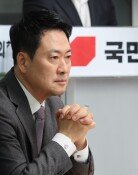[Opinion] Koreas 3 Rs: Reading, Writing and Anti-Corporate Sentiment
[Opinion] Koreas 3 Rs: Reading, Writing and Anti-Corporate Sentiment
Posted November. 10, 2005 03:34,
The favorite game amongst U.S. elementary, middle and high school students these days is the Hot Shot Biz Game. As many as 13 million young Americans enjoy operating a virtual company as a CEO in the classroom game, and their performances are evaluated every six weeks online. In the game, American students learn about finance and economy at school, and experience running a business in their leisure time.
The U.S. government enhanced the math, science and economy courses at schools, in a bid to boost its national competitiveness, after the former Soviet Union launched the first artificial satellite, Sputnik One, in 1957. Economics courses became required courses at schools, and regional economic education centers were set up led by universities and research institutes. Since the mid 1990s, financial literacy education has been promoted as well.
Britons receive economic education step by step from childhood to high school. Japan provides financial literacy education materials to schools.
In contrast, Korean youths are imbued with anti-corporate and anti-globalization sentiment at schools and addicted to video games.
According to the survey of 3,019 students from 32 middle and high schools commissioned by You Jang-hee, the deputy chancellor of Ewha Womans University, Korean students are greatly influenced by anti-corporate sentiment. They answered that the first priority for business is not creation of profits but fulfilling their social responsibility. Their answers suggest that they place more emphasis on equality than efficiency. A majority of economy teachers were also found to believe that developing a market economy is equivalent to Americanization, and that employees should be regarded as owners of a company.
Maybe thats the rationale behind the recent attempt of unionized teachers to teach students that the open market system is not a good idea at a time when moderate North Koreans are making moves to open up their market.
The right understanding of the market economy is essential to improving an individuals quality of life as well as boosting national wealth. You are deemed illiterate, if you dont know about economy and finance in this global economy.
It is even more pressing to deal with the financial illiteracy of teachers than that of students. The government should provide teachers with more opportunities to receive financial literacy education and overhaul the curriculum of universities of education.
Lee, Won-jae, the head of the Fili School, an economic education institute, said No other infrastructure investment is more crucial than giving children opportunities to learn entrepreneurship in a modern society or a business-oriented society.
Lim Kyu-jin, Editorial Writer, mhjh22@donga.com



![“잠만 자면 입이 바싹바싹”…잠들기 전에 이것 체크해야 [알쓸톡]](https://dimg.donga.com/c/138/175/90/1/wps/NEWS/IMAGE/2026/02/23/133404749.3.jpg)



